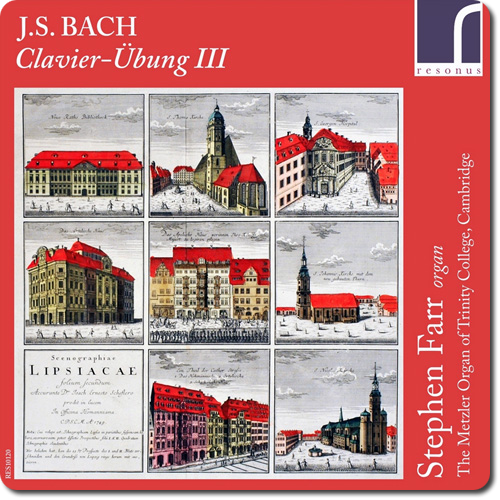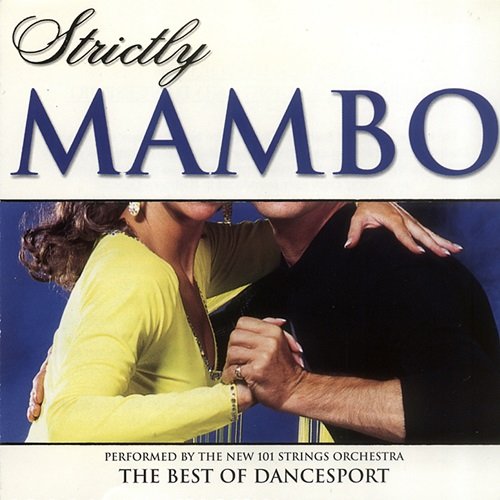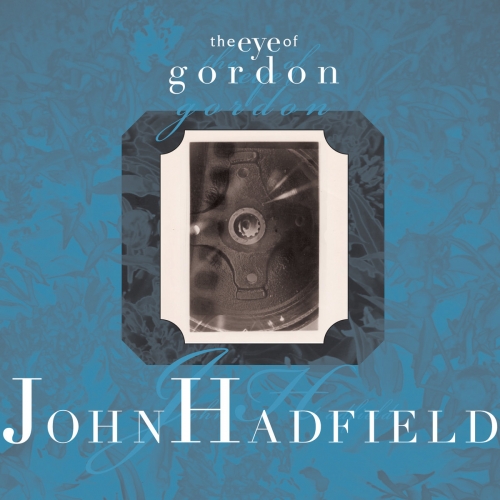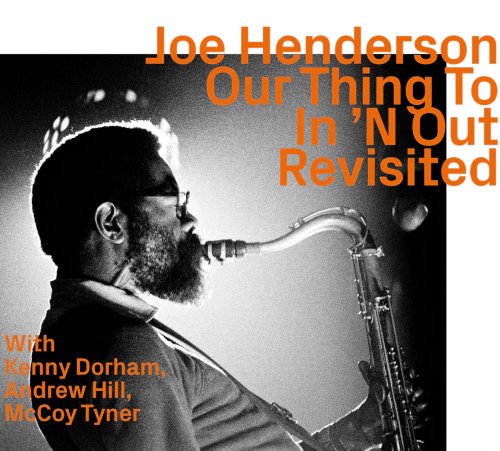Stephen Farr - Bach: Clavier-Übung III (2013) [Hi-Res]

Artist: Stephen Farr
Title: Bach: Clavier-Übung III
Year Of Release: 2013
Label: Resonus Classics
Genre: Classical
Quality: FLAC (tracks, booklet) [96kHz/24bit]
Total Time: 1:45:06
Total Size: 1.67 GB
WebSite: Album Preview
Tracklist:Title: Bach: Clavier-Übung III
Year Of Release: 2013
Label: Resonus Classics
Genre: Classical
Quality: FLAC (tracks, booklet) [96kHz/24bit]
Total Time: 1:45:06
Total Size: 1.67 GB
WebSite: Album Preview
01. Praeludium pro Organo pleno, BWV 552/1 (8:58)
02. Kyrie, Gott Vater in Ewigkeit, BWV 669 (3:27)
03. Christe, aller Welt Trost, BWV 670 (5:02)
04. Kyrie, Gott heiliger Geist, BWV 671 (5:31)
05. Kyrie, Gott Vater in Ewigkeit, BWV 672 (1:54)
06. Christe, aller Welt Trost, BWV 673 (1:45)
07. Kyrie, Gott heiliger Geist, BWV 674 (1:59)
08. Allein Gott in der Höh’ sei Ehr’, BWV 675 (3:27)
09. Allein Gott in der Höh’ sei Ehr’, BWV 676 (5:21)
10. Allein Gott in der Höh’ sei Ehr’, BWV 677 (1:08)
11. Dies sind die heilgen zehn Gebot, BWV 678 (5:04)
12. Dies sind die heilgen zehn Gebot, BWV 679 (2:11)
13. Wir glauben all an einen Gott, BWV 680 (3:23)
14. Wir glauben all an einen Gott, BWV 681 (1:26)
15. Vater unser in Himmelreich, BWV 682 (6:29)
16. Vater unser in Himmelreich, BWV 683 (1:13)
17. Christ, unser Herr, zum Jordan kam, BWV 684 (4:18)
18. Christ, unser Herr, zum Jordan kam, BWV 685 (1:26)
19. Aus tiefer Not schrei ich zu dir, BWV 686 (6:54)
20. Aus tiefer Not schrei ich zu dir, BWV 687 (6:03)
21. Jesus Christus, unser Heiland, der von uns den Zorn Gottes wandt, BWV 688 (4:21)
22. Jesus Christus, unser Heiland, BWV 689 (5:02)
23. Duetto I in E Minor, BWV 802 (2:36)
24. Duetto II in F Major, BWV 803 (3:34)
25. Duetto III in G Major, BWV 804 (2:46)
26. Duetto IV in A Minor, BWV 805 (2:51)
27. Fuga, BWV 552/2 (6:58)
The internationally acclaimed organist Stephen Farr presents his first J.S. Bach recording with the virtuosic Clavier-Übung III. Containing some of Bach's most stunning work, this collection demonstrates the composer at the height of his powers in composing for the organ and was one of the few works that Bach had published during his lifetime.
Bach published four works under the title Clavier Übung (literally 'keyboard practice') during his lifetime. No. 1 is the Six Partitas BWV825-830, no. 2 is the Italian Concerto BWV 971 and French Overture BWV 831 and no. 4 is the Goldberg Variations. Only Clavier Übung III, sometimes known as the German Organ Mass, is specifically marked as being for organ. The other three are more generically marked as being for clavier (keyboard) and are commonly played on the harpsichord. Clavier Übung III appeared in print in Leipzig in 1739, with the title page dedicating its contents to 'music lovers for the recreation of their spirits', though Bach adds ' and especially for connoisseurs of such work'.
Quite who Bach's intended audience for the performance of these pieces was is not entirely clear. His other published collection of organ pieces, the Orgelbuchlein (1708-1717) had a clear purpose in providing a repertoire of pieces usable in the Lutheran service. But Clavier Übung III does not seem to have had such a purpose, some of the pieces are simply too big to be used in a service and others have no apparent place in the liturgy.
On this new recording from Resonus Classics (available for download only), Stephen Farr plays the work on the Metzler organ of Trinity College, Cambridge. This instrument dates from 1975, but contains seven ranks of pipework from earlier instruments installed by Father Smith in 1694 and 1708. It is a mechanical action and is based in the original cases. It is a fine instrument indeed, and one in a fine acoustic, which is ideal for playing the music of Bach. Farr is Director of Music at St Paul’s Knightsbridge in London, and ACE Foundation Director of Music at Corpus Christi College, Cambridge
The collection consists of a framing Prelude and Fugue which were in fact after thoughts. Following the opening prelude, the main part of the collection consists of a series of chorale settings. The first group is based on the German Kyrie and Gloria tunes from the Lutheran liturgy, six Kyrie settings and three Gloria settings. The Kyrie settings split further, revealing another aspect of the collection, chorale settings both with and without pedals.
The Kyrie and Gloria settings are followed by chorale settings based on six German catechism hymns (covering the Ten Commandments, the Creed, Lord's Prayer, Baptism, Repentance and Eucharist). Each chorale setting exists in two versions a large one with pedals and a small one without. These pedal/no pedal works are presented in alternation. Finally there are four duets, probably a late addition to the collection and rather akin to the two-part inventions. To complete things there is the fugue, the glorious St. Anne's Fugure a fitting conclusion to a major work.
All in all, Bach probably didn't intend us to sit down and listen to the collection from end to end, or did he? The work acts as a compendium of organ styles, both ancient and modern, and in structure probably owed something to Bach's own organ recitals. Add to this that the texts from the chorales act as a practical translation of Lutheran doctrine into musical terms for devotional use in the church or the home. In fact the the number of chorale preludes (21) corresponds to the number of movements in a French organ mass.
I've never heard the Trinity College organ live, alas, but the recording seems to capture the richness and depth of the voicing, along with the bloom of the acoustic but always allied to a fine clarity. You can always hear what's going on in even the most complex of Bach's counterpoint, without it ever feeling like a tutorial. Farr is attractively imaginative in his use of registrations, and notable for the way his solo stops bring out the chorale melody. Farr's tempi are flexible and flowing, you feel that he neither plods nor rushes.
The recording is a very fine achievement, combining technical skill with a naturalness of playing, allied to the fine mechanical action Metzler organ so that this is a collection that I could happily come back to again and again.
The recording is available for download only and Resonus Classics offers a wide range of formats from MP3 to 24-bit/96kHz studio quality masters. The recording comes with a PDF booklet which includes the full specification for the organ and the registrations used in the recording, along with the texts and translations for all the chorales plus photographs of the organ's historic cases.
There are of course other recordings, many in fact. Christopher Herrick has recorded the collection on another Metzler organ, Kare Nordstoga has recorded it on the historic Schnitger organ at the St. Michaelis Church at Zwolle in the Netherlands (dating from 1721 and restored by Flentrop in 1958), Wolfgang Rubsam (on Naxos) plays them on the historic Gottfried Silbermann organ in the Cathedral at Freiburg in Germany. (Robert Hugill, www.planethugill.com)
'It's a courageous first foray into the german master's music [...] Farr rises to the occasion, turning in performances that are as varied and vital as the music demands, intricate details inked with telling clarity and the elongated arc of the whole negotiated with nimble and nuanced aplomb. Superb recorded sound.' (Choir and Organ - 5 stars)
'All lovers of Bach's music should be prepared to order this new Resonus recording [...] I was so completely sold on this new recording I have no real reservations.' (MusicWeb International)
'The recording is a very fine achievement, combining technical skill with a naturalness of playing, allied to the fine mechanical action Metzler organ so that this is a collection I would happily come back to again and again.' (Planet Hugill)
Stephen Farr, organ
Recorded on the Metzler Organ, Trinity College Chapel, Cambridge
Bach published four works under the title Clavier Übung (literally 'keyboard practice') during his lifetime. No. 1 is the Six Partitas BWV825-830, no. 2 is the Italian Concerto BWV 971 and French Overture BWV 831 and no. 4 is the Goldberg Variations. Only Clavier Übung III, sometimes known as the German Organ Mass, is specifically marked as being for organ. The other three are more generically marked as being for clavier (keyboard) and are commonly played on the harpsichord. Clavier Übung III appeared in print in Leipzig in 1739, with the title page dedicating its contents to 'music lovers for the recreation of their spirits', though Bach adds ' and especially for connoisseurs of such work'.
Quite who Bach's intended audience for the performance of these pieces was is not entirely clear. His other published collection of organ pieces, the Orgelbuchlein (1708-1717) had a clear purpose in providing a repertoire of pieces usable in the Lutheran service. But Clavier Übung III does not seem to have had such a purpose, some of the pieces are simply too big to be used in a service and others have no apparent place in the liturgy.
On this new recording from Resonus Classics (available for download only), Stephen Farr plays the work on the Metzler organ of Trinity College, Cambridge. This instrument dates from 1975, but contains seven ranks of pipework from earlier instruments installed by Father Smith in 1694 and 1708. It is a mechanical action and is based in the original cases. It is a fine instrument indeed, and one in a fine acoustic, which is ideal for playing the music of Bach. Farr is Director of Music at St Paul’s Knightsbridge in London, and ACE Foundation Director of Music at Corpus Christi College, Cambridge
The collection consists of a framing Prelude and Fugue which were in fact after thoughts. Following the opening prelude, the main part of the collection consists of a series of chorale settings. The first group is based on the German Kyrie and Gloria tunes from the Lutheran liturgy, six Kyrie settings and three Gloria settings. The Kyrie settings split further, revealing another aspect of the collection, chorale settings both with and without pedals.
The Kyrie and Gloria settings are followed by chorale settings based on six German catechism hymns (covering the Ten Commandments, the Creed, Lord's Prayer, Baptism, Repentance and Eucharist). Each chorale setting exists in two versions a large one with pedals and a small one without. These pedal/no pedal works are presented in alternation. Finally there are four duets, probably a late addition to the collection and rather akin to the two-part inventions. To complete things there is the fugue, the glorious St. Anne's Fugure a fitting conclusion to a major work.
All in all, Bach probably didn't intend us to sit down and listen to the collection from end to end, or did he? The work acts as a compendium of organ styles, both ancient and modern, and in structure probably owed something to Bach's own organ recitals. Add to this that the texts from the chorales act as a practical translation of Lutheran doctrine into musical terms for devotional use in the church or the home. In fact the the number of chorale preludes (21) corresponds to the number of movements in a French organ mass.
I've never heard the Trinity College organ live, alas, but the recording seems to capture the richness and depth of the voicing, along with the bloom of the acoustic but always allied to a fine clarity. You can always hear what's going on in even the most complex of Bach's counterpoint, without it ever feeling like a tutorial. Farr is attractively imaginative in his use of registrations, and notable for the way his solo stops bring out the chorale melody. Farr's tempi are flexible and flowing, you feel that he neither plods nor rushes.
The recording is a very fine achievement, combining technical skill with a naturalness of playing, allied to the fine mechanical action Metzler organ so that this is a collection that I could happily come back to again and again.
The recording is available for download only and Resonus Classics offers a wide range of formats from MP3 to 24-bit/96kHz studio quality masters. The recording comes with a PDF booklet which includes the full specification for the organ and the registrations used in the recording, along with the texts and translations for all the chorales plus photographs of the organ's historic cases.
There are of course other recordings, many in fact. Christopher Herrick has recorded the collection on another Metzler organ, Kare Nordstoga has recorded it on the historic Schnitger organ at the St. Michaelis Church at Zwolle in the Netherlands (dating from 1721 and restored by Flentrop in 1958), Wolfgang Rubsam (on Naxos) plays them on the historic Gottfried Silbermann organ in the Cathedral at Freiburg in Germany. (Robert Hugill, www.planethugill.com)
'It's a courageous first foray into the german master's music [...] Farr rises to the occasion, turning in performances that are as varied and vital as the music demands, intricate details inked with telling clarity and the elongated arc of the whole negotiated with nimble and nuanced aplomb. Superb recorded sound.' (Choir and Organ - 5 stars)
'All lovers of Bach's music should be prepared to order this new Resonus recording [...] I was so completely sold on this new recording I have no real reservations.' (MusicWeb International)
'The recording is a very fine achievement, combining technical skill with a naturalness of playing, allied to the fine mechanical action Metzler organ so that this is a collection I would happily come back to again and again.' (Planet Hugill)
Stephen Farr, organ
Recorded on the Metzler Organ, Trinity College Chapel, Cambridge
Related Releases:
![Oulu All Star Big Band, Ingá-Máret Gaup-Juuso and Jukka Eskola - Davvi Oktavuohta - Pohjoinen yhteys (2026) [Hi-Res] Oulu All Star Big Band, Ingá-Máret Gaup-Juuso and Jukka Eskola - Davvi Oktavuohta - Pohjoinen yhteys (2026) [Hi-Res]](https://www.dibpic.com/uploads/posts/2026-02/1770364798_k6yo0dxz10jkv_600.jpg)


![Dave Liebman, Billy Hart & Adam Rudolph - Beingness (2026) [Hi-Res] Dave Liebman, Billy Hart & Adam Rudolph - Beingness (2026) [Hi-Res]](https://www.dibpic.com/uploads/posts/2026-02/1770210118_oyk954khn2fqv_600.jpg)



![Peter Appleyard Orchestra - Percussive Jazz (Remastered) (19602025) [Hi-Res] Peter Appleyard Orchestra - Percussive Jazz (Remastered) (19602025) [Hi-Res]](https://www.dibpic.com/uploads/posts/2026-02/1770205711_papj500.jpg)
